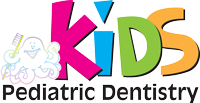
14 Dec How to Protect Your Child’s Tooth Enamel?
Brushing is only one aspect of good oral hygiene. Most American dentists claim that children’s tooth enamel degradation is on the rise. Parents must make a concerted effort to protect their children’s enamel if they wish to stop the wear and tear on their teeth in particular.
What Causes Enamel Erosion?
The enamel is the white hard substance that serves as outer covering of a tooth. Its role is to protect teeth against cavities and deterioration. Acids found in food and drinks as well as abrasive substances in toothpaste can erode this enamel covering. Unfortunately, this damage is irreversible. So take care of your child’s food and make them follow good oral hygiene practices to protect their teeth.
Here are the action points and if followed consistently then you can make your child’s enamel strong.
Say ‘No’ to Sugary Foods and Drinks
Children are fond of sweet food and drinks and that is terrible for their general and dental enamel health. Parents who take this food issue lightly their children suffer from health issues like obesity and early tooth decay. Bacteria from sugar in teeth causes plaque that ultimately leads to cavities and harming tooth enamel. Keep in mind that not all sugary foods are obvious. Rice and bread also break down into simple sugars that harm teeth. While shopping groceries always check for the nutrition information that you can find on the package’s back.
Welcome Calcium-Rich Foods
Calcium is a super-mineral for dental health and neutralizes the harm that acids bring to teeth. To enhance your child’s calcium intake, try adding at least one dairy product to each of their meals. If your child is unable to consume dairy items then give them calcium-rich foods and beverages like almond milk, canned salmon, kale, almonds, or soybeans.
Toothbrush and Brushing Habit
One biggest approach to maintain your child’s teeth healthy and cavity-free is that they brush teeth daily. Always choose a toothbrush with soft bristles rather than one with medium or hard bristles. Soft brushes clean and remove plaque gently and effectively without harming tooth enamel.
Fluoridated Toothpaste
Fluoride is a natural mineral and safe for children. It protects teeth and helps strengthen the enamel. American Academy of Pediatrics (AAP) recommends using a “smear” of fluoride toothpaste twice a day when the first tooth erupts and up to age 3. Once your child is three years old then you can give them a pea-sized amount of fluoride toothpaste. When choosing fluoridated toothpaste for your child make sure it is safe for children and is approved by American Dental Association (ADA).
Limit Citrus
One another way to protect child’s tooth enamel is to limit their citric intake. Excessive use of citric saturated foods and drinks weaken the tooth enamel and the process is called demineralization. Fruits with high level of citric acid are:
- Lemons
- Oranges
- Limes
- Grapefruits
Citric acid is used as a flavoring and preservative agent in food and beverages, especially soft drinks. It is used in ice cream also to prevent sucrose crystallization. So as a parent beware of all these food items.
Enamel Erosion – Early Signs
White spots on the tooth are early signs of tooth erosion. With the passage of time it will change to brown, then brown to black which ultimately rot the tooth. It is best to visit a pediatric dentist as the first sign appears this way you may get a professional advice on preventive care.
If you still have question about how to protect your kids’ dental enamel then schedule a consultation with your kids’ dentist or contact Kids Pediatric Dentistry in Allen, TX area.
